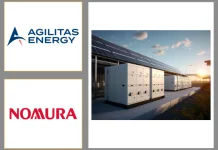According to a statement from the office of New York Gov. Kathy Hochul, the U.S. Department of Energy (DOE) and the New York State Energy Research and Development Authority (NYSERDA) have reached a memorandum of understanding (MOU) to facilitate clean energy financing for large-scale renewable projects. The MOU will allow New York State to leverage the DOE Loan Programs Office (LPO) and strengthen the cooperation between federal and state energy departments.
“This new partnership between New York State and the U.S. Department of Energy illustrates a shared belief among New York and federal leaders that time is of the essence,” says Gov. Hochul. “We must pave a clear path forward for clean energy.”
Within the bounds of this new partnership, NYSERDA and DOE have defined a process to facilitate the review of applications from utility scale solar, onshore and offshore wind clean energy projects applying for financing through the LPO. This would include projects already under contract with NYSERDA, as well as those that will contract with NYSERDA in the future.
Under the Title 17 Loan Guarantee Program, LPO may, subject to obtaining required credit approvals, provide financing to eligible projects for up to 80% of eligible project costs, with a tenor dependent on project needs and expected asset life, and in any event, not exceeding 30 years.
This partnership will enable clean energy projects in New York to access alternative financing options considering the current inflationary and high interest rate environment. Any cost savings that could benefit projects from accessing LPO loans could be shared with New York State ratepayers and potentially enable billions of dollars in savings.
“This partnership highlights the power of federal and state collaboration as we work toward achieving key climate goals,” says Doreen M. Harris, president and CEO, NYSERDA.
Under the Title 17 Clean Energy Financing Program, LPO can finance projects in the U.S. that support clean energy deployment and energy infrastructure reinvestment to reduce greenhouse gas emissions and air pollution.
Title 17 was created by the Energy Policy Act of 2005 and has since been amended twice. The legislation expanded the scope of Title 17 to include certain state-supported projects and projects that reinvest in legacy energy infrastructure, and it leverages additional loan authority and funding available for projects involving innovative energy technologies.
There are four project categories within the Title 17 Clean Energy Financing Program:
- Innovative Energy: Projects that deploy new or significantly improved technology that is technically proven but not yet widely commercialized in the U.S.
- Innovative Supply Chain: Projects that employ a new or significantly improved technology in the manufacturing process for a qualifying clean energy technology or for projects that manufacture a new or significantly improved technology.
- State Energy Financing Institution (SEFI)-Supported: Projects that support deployment of qualifying clean energy technology and receive meaningful financial support or credit enhancements from an entity within a state agency or financing authority.
- Energy Infrastructure Reinvestment (EIR): Projects that retool, repower, repurpose or replace energy infrastructure that has ceased operations or upgrade operating energy infrastructure to avoid, reduce, utilize or sequester air pollutants or greenhouse gas emissions.




